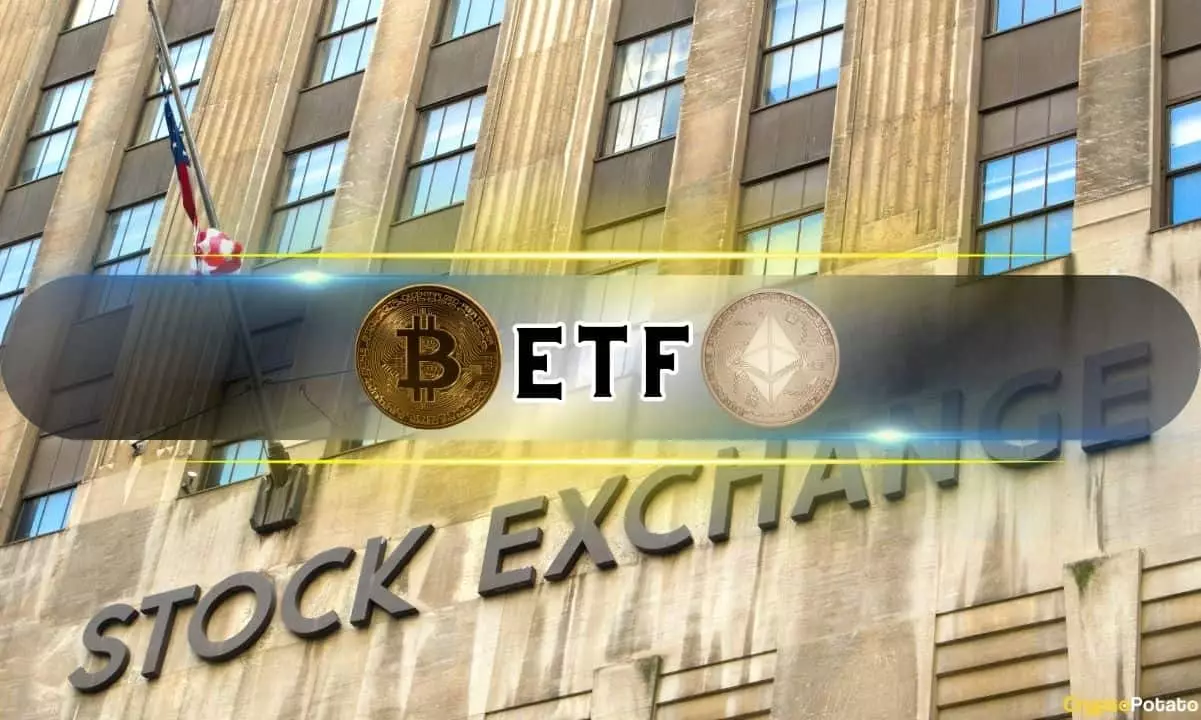Bitcoin Exchange-Traded Funds (ETFs) have been dominating the market recently, with a significant increase in investments over the past week. The largest US-based Bitcoin ETFs saw a total of over $500 million being allocated to them, indicating a strong investor interest in the cryptocurrency. Despite a rough start at the beginning of the month, with losses of more than $550 million in just three days, the ETFs have managed to bounce back, along with the rise in Bitcoin’s price. In fact, the past week alone saw impressive inflows, totaling $506.4 million, showcasing growing confidence among investors.
BlackRock’s Bitcoin ETF, IBIT, has been leading the pack in terms of attracting investments, with gains of $92.7 million on Monday and $86.8 million on Friday. On the other hand, Grayscale’s GBTC has been experiencing outflows, with millions leaving the fund on a daily basis. Despite the competition, BlackRock’s Bitcoin ETF now holds over $20.7 billion, outpacing Grayscale’s ETF by nearly $1 billion. This indicates a shift in investor preferences towards certain ETF products, with BlackRock emerging as a clear winner in the Bitcoin market.
The Struggle of Ethereum ETFs
In contrast to the success of Bitcoin ETFs, Ethereum ETFs have been facing challenges in attracting investors. The spot Ethereum ETFs in the US have experienced minor trading volumes and consistent withdrawals. Even after being launched for three weeks, the ETH-based products have failed to generate significant interest. Grayscale’s ETHE, for example, has seen withdrawals in 13 out of the 14 days since its launch, highlighting a lack of demand for Ethereum ETFs. Overall, Ethereum ETFs have been in the red for 10 out of the 14 trading days, underscoring a struggle to gain traction in the market.
Despite the overall lukewarm response to Ethereum ETFs, there have been some exceptions. BlackRock’s ETHA, the first newly launched fund to surpass the $1 billion mark, saw inflows only on Monday, reaching $26.8 million. Similarly, Fidelity’s FETH had a strong Thursday, with $14.3 million in net flows. These instances indicate that while there may be some potential for growth in specific Ethereum ETF products, the overall sentiment towards Ethereum ETFs remains hesitant.
The rise of Bitcoin ETFs and the struggle of Ethereum ETFs reflect a broader trend in the market. While Bitcoin continues to attract significant investments and gain momentum, Ethereum ETFs are facing difficulties in capturing investor interest. The competition between BlackRock and Grayscale in the Bitcoin market highlights the ongoing battle for dominance in the ETF space. As for Ethereum ETFs, the lackluster performance suggests a need for greater market awareness and investor education to drive demand for these products. In the evolving landscape of cryptocurrency investments, both Bitcoin and Ethereum ETFs are likely to play crucial roles in shaping the future of digital asset trading.


Leave a Reply